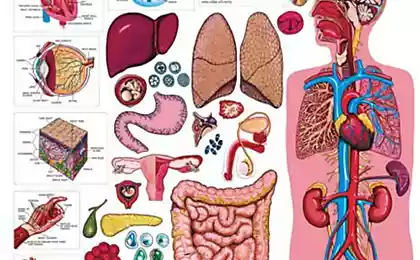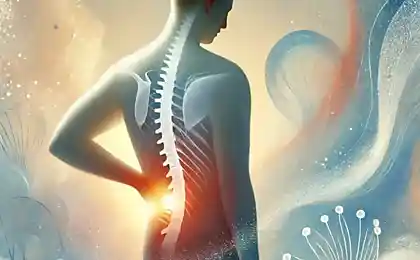201
How the disease tries to get what it wants
For many of us, the question of a psychologist “What hurts you?” may sound unexpected. It would seem that our physical well-being should worry not so much a psychologist as a doctor. However, it often happens that the cause of our bodily suffering is some serious intrapsychic problems.
Behind the usual headache or heart pain may hide a conflict with some significant person, conflicting desires. The appearance of certain symptoms indicates a conflict communication of a person with loved ones, a suppressed feeling of aggression or fear, the presence of dissatisfaction or constant tension.

The manifestation of such symptoms is often the only way to adapt to the surrounding reality. The most basic example: why do children who attend kindergarten often become very painful for no apparent reason? The answer is simple: it’s the only way to stay home and get the love and attention of your parents.
Also, an adult, not being able to constantly cope with any stress, begins to somatize his difficulties, turning a prolonged internal conflict into a chronic disease. In a situation of chronic disease, the adult becomes in some respects a “child”, unconsciously satisfying certain desires and needs, receiving what he could not achieve in a healthy state.
Modern society forces a person to exist in a frantic rhythm, constantly live in tension, constantly strive to achieve some goals. Striving for successful self-fulfillment and high social status, we often ignore our desires and needs, deny ourselves rest, deplete our internal resources, live in constant tension. Then the unconscious part of our psyche "makes the decision" for us - the disease appears as a way to avoid an unbearable, debilitating situation.
In a similar way, we can react to conflicts with loved ones that cannot be resolved consciously. At what point we may lack their attention and support, and we may not always be able to ask for help, and relatives may not always be able to provide it.
In such cases, the obvious physical suffering of others gives us the right to increased attention and care. The disease becomes “beneficial” and although we consciously strive to get rid of the painful symptoms, our unconscious does not allow us to do so. The disease or symptom acts as a communication channel with others.
Psychological factors have a decisive influence on the occurrence of the following diseases: Allergies, bronchial asthma, hypertension, heart disease, 12-domestic intestine, ulcerative colitis, neurodermatitis, psoriasis, nonspecific polyarthritis, as well as migraines, thyroid diseases, diabetes, malignant neoplasms.
Studies in the field of psychosomatics allow us to understand what external and internal psychological factors influence the occurrence of a number of somatic diseases, and vice versa, how a person's perception of himself, the world around him, how his relationship with people changes during illness. Attempts are made to identify the types of motivational conflicts specific to this disease.

Signs of drug intoxication or how to determine a drug addict by the eyesYoshiro Tsutsumi Exercise for Keeping Peace of Mind in a Difficult Situation
For example, the “ulcer” type of people is engaged in “self-eating”, that is, the suppression of needs that do not correspond to social requirements. Such people reject the need for dependence, support, empathy; insecure, straightforward, categorical.
Of course not. It is not necessary to reduce the appearance of any diseases exclusively to psychosomatics. It is necessary to constantly take care of your health and consult the appropriate specialists - doctors. However, we should not forget that mental health is a necessary factor for the preservation of bodily health, because a person is a bio... psycho... social being and it is very harmful to underestimate any of the components of our personality. For health.published
Source: vk.com/teleska_tot?w=wall-63485629_16323
Behind the usual headache or heart pain may hide a conflict with some significant person, conflicting desires. The appearance of certain symptoms indicates a conflict communication of a person with loved ones, a suppressed feeling of aggression or fear, the presence of dissatisfaction or constant tension.

The manifestation of such symptoms is often the only way to adapt to the surrounding reality. The most basic example: why do children who attend kindergarten often become very painful for no apparent reason? The answer is simple: it’s the only way to stay home and get the love and attention of your parents.
Also, an adult, not being able to constantly cope with any stress, begins to somatize his difficulties, turning a prolonged internal conflict into a chronic disease. In a situation of chronic disease, the adult becomes in some respects a “child”, unconsciously satisfying certain desires and needs, receiving what he could not achieve in a healthy state.
Modern society forces a person to exist in a frantic rhythm, constantly live in tension, constantly strive to achieve some goals. Striving for successful self-fulfillment and high social status, we often ignore our desires and needs, deny ourselves rest, deplete our internal resources, live in constant tension. Then the unconscious part of our psyche "makes the decision" for us - the disease appears as a way to avoid an unbearable, debilitating situation.
In a similar way, we can react to conflicts with loved ones that cannot be resolved consciously. At what point we may lack their attention and support, and we may not always be able to ask for help, and relatives may not always be able to provide it.
In such cases, the obvious physical suffering of others gives us the right to increased attention and care. The disease becomes “beneficial” and although we consciously strive to get rid of the painful symptoms, our unconscious does not allow us to do so. The disease or symptom acts as a communication channel with others.
Psychological factors have a decisive influence on the occurrence of the following diseases: Allergies, bronchial asthma, hypertension, heart disease, 12-domestic intestine, ulcerative colitis, neurodermatitis, psoriasis, nonspecific polyarthritis, as well as migraines, thyroid diseases, diabetes, malignant neoplasms.
Studies in the field of psychosomatics allow us to understand what external and internal psychological factors influence the occurrence of a number of somatic diseases, and vice versa, how a person's perception of himself, the world around him, how his relationship with people changes during illness. Attempts are made to identify the types of motivational conflicts specific to this disease.

Signs of drug intoxication or how to determine a drug addict by the eyesYoshiro Tsutsumi Exercise for Keeping Peace of Mind in a Difficult Situation
For example, the “ulcer” type of people is engaged in “self-eating”, that is, the suppression of needs that do not correspond to social requirements. Such people reject the need for dependence, support, empathy; insecure, straightforward, categorical.
Of course not. It is not necessary to reduce the appearance of any diseases exclusively to psychosomatics. It is necessary to constantly take care of your health and consult the appropriate specialists - doctors. However, we should not forget that mental health is a necessary factor for the preservation of bodily health, because a person is a bio... psycho... social being and it is very harmful to underestimate any of the components of our personality. For health.published
Source: vk.com/teleska_tot?w=wall-63485629_16323
























